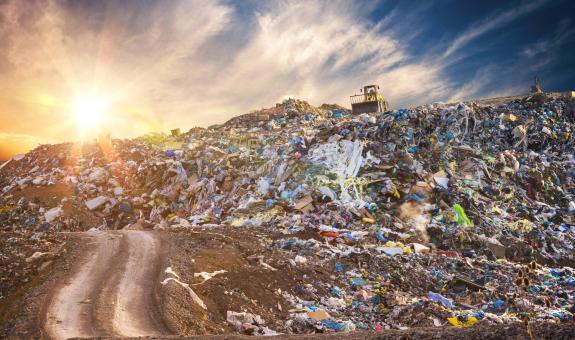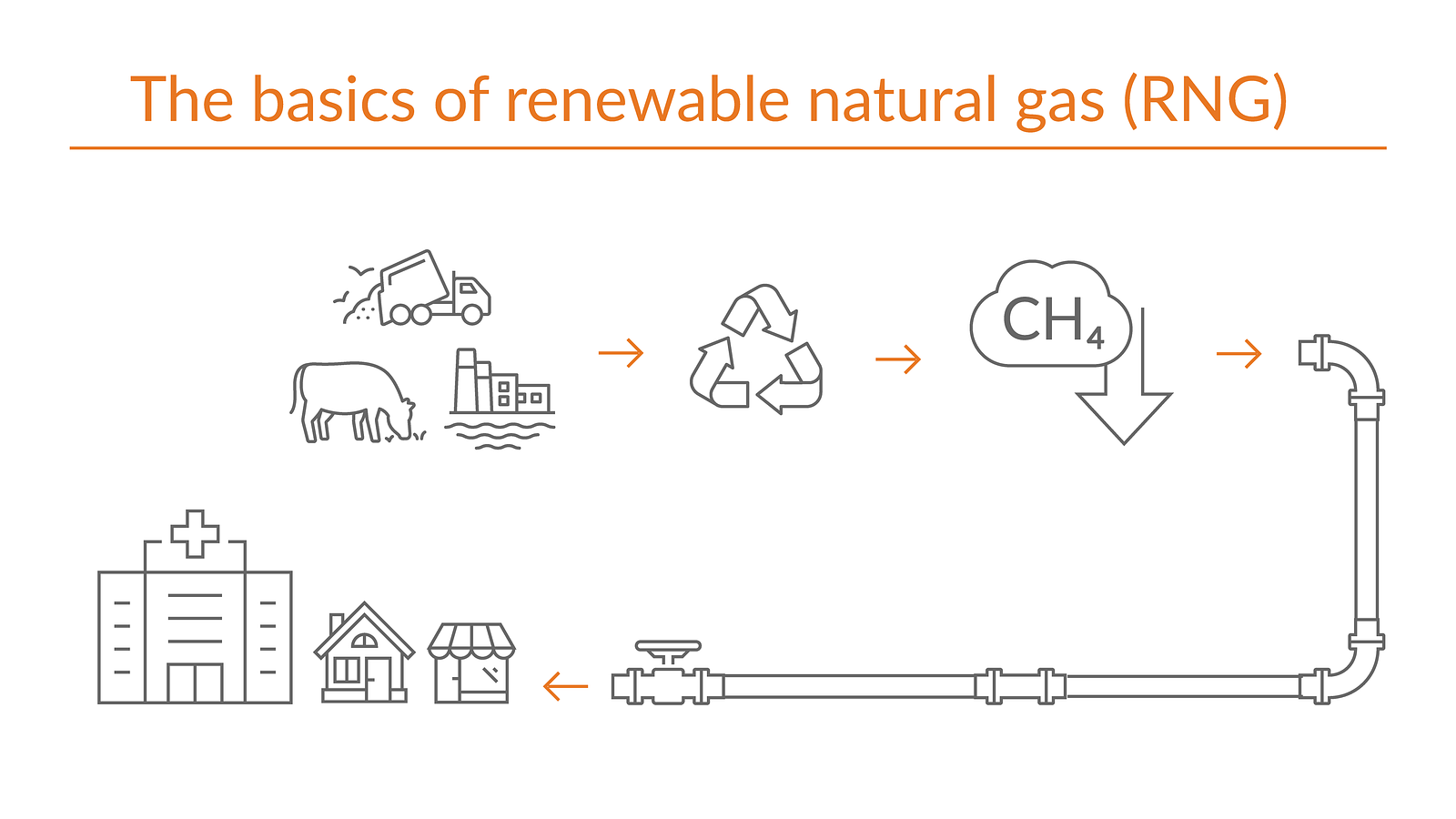
Bringing a renewable source of natural gas into Spire Missouri's system
Renewable natural gas (RNG) is natural gas produced from organic sources, like livestock waste, landfills, wastewater and food waste.
And in Missouri, Spire is bringing renewable natural gas into our supply portfolio and help us meet our customers’ growing interest in lower carbon, affordable and reliable energy. In many cases, these projects also reduce methane emissions.
We’ll include this renewable energy in our natural gas supply for Spire Missouri customers to heat homes, fuel businesses and potentially fuel vehicles. Because RNG is fully compatible with conventional natural gas and existing pipeline infrastructure, customers do not need to change their natural gas appliances to reap the environmental benefits of RNG.

Unutilized agricultural byproducts such as manure and plant matter emit methane while they decay, with agriculture accounting for 36% of methane emitted annually in the United States. This can be captured and turned into RNG.

Municipal solid waste (MSW) landfills are the third-largest source of human-related methane emissions in the United States, accounting for approximately 14.3 percent of these emissions in 2021. Landfill gas can be turned into pipeline-ready RNG.
Benefits of RNG
Explore the ways renewable natural gas supports both people and the planet.
- Turning waste into energy: Unused agricultural byproducts like manure and plant matter emit methane while they decay, with agriculture accounting for 36% of methane emitted annually in the United States.
- Lowering emissions: RNG is considered a carbon neutral fuel. And using biogases like RNG directly displaces fossil fuel consumption and prevents the greenhouse gas methane from entering the atmosphere.
- Working with existing systems: Since RNG is ready to use in existing natural gas infrastructure, it can be injected into pipelines to immediately begin reducing the carbon intensity of natural gas in our system.
- Supported by the public and private sectors: Thanks to legislation passed in Missouri, Spire can make qualified capital investments in RNG infrastructure. Spire has been meeting and collaborating with other utilities, private developers, and the the Missouri Public Service Commission to help write and adopt rules to implement this law.
